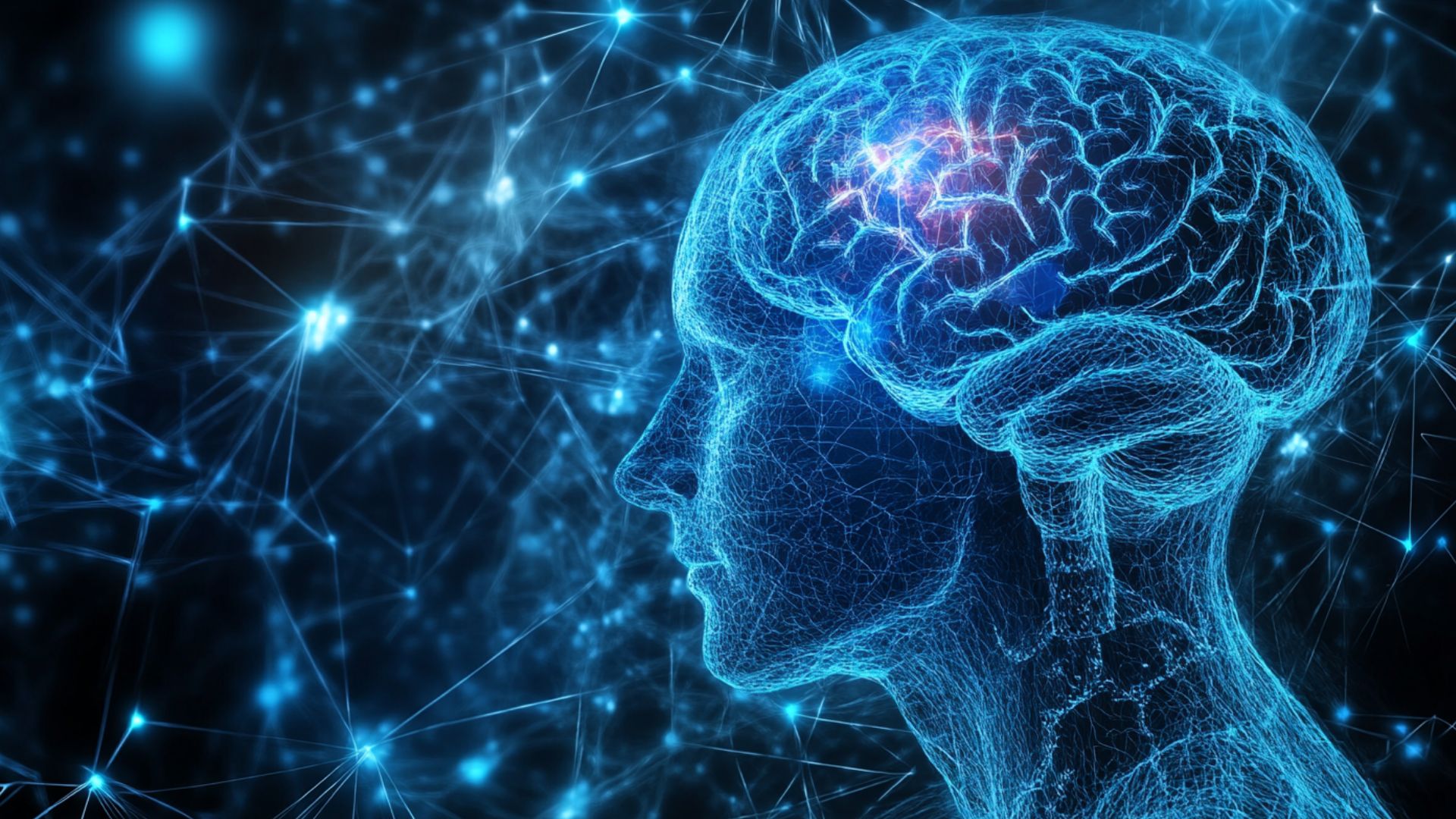Sleep is vital for maintaining optimal brain health. During rest, the brain restores cognitive functions and clears harmful toxins that accumulate throughout the day. Deep sleep activates the glymphatic system, which flushes out damaging proteins like beta-amyloid, a substance linked to Alzheimer’s disease development.
When sleep quality suffers, this crucial cleaning process becomes disrupted, impairing memory formation, attention span, and emotional regulation. Chronic sleep deprivation significantly increases the risk of serious conditions, including stroke, dementia, and depression. Research shows that fragmented sleep patterns accelerate brain aging and cognitive decline.
Sleep disorders neurology plays a central role in understanding these connections, as they affect millions of Americans. Conditions like insomnia, sleep apnea, and restless legs syndrome can contribute to neurodegeneration and cognitive deficits over time. For example, untreated sleep apnea leads to hypoxia (oxygen deprivation), which progressively damages brain cells and impairs function.
Common Sleep Disorders
Sleep disorders are conditions that disrupt sleep quality, timing, and duration, significantly impacting overall health, mood, and brain function. Poor sleep can worsen memory, focus, and emotional stability, making early diagnosis and management crucial.
The Most Common Sleep Disorders:
- Insomnia: Difficulty falling asleep or staying asleep throughout the night, leading to persistent fatigue, poor concentration, and irritability. Stress, anxiety, or underlying neurological issues often trigger insomnia.
- Sleep Apnea: A condition where breathing repeatedly stops and starts during sleep. Common sleep apnea symptoms include loud snoring, excessive daytime sleepiness, and morning headaches. This disorder significantly increases the risk of hypertension and stroke.
- Restless Legs Syndrome (RLS): An uncontrollable urge to move the legs, especially at night, which disrupts sleep quality and may be linked to dopamine imbalances in the brain.
- Narcolepsy: A condition causing sudden, uncontrollable sleep attacks during the day, affecting muscle control and alertness.
- Circadian Rhythm Disorders: Conditions where the body’s internal clock becomes misaligned with the environment, commonly triggered by shift work schedules or jet lag.
Sleep disorders neurology focuses on understanding how the brain regulates sleep and wake cycles. The hypothalamus, brainstem, and various neurotransmitters play vital roles in this regulation. When these systems malfunction, sleep becomes irregular or unrefreshing, leading to significant health consequences.
Neurologist sleep specialists use comprehensive sleep studies, brain imaging, and detailed medical histories to identify underlying causes. Treatment depends on the specific disorder type and may include behavioral therapy, medication, and lifestyle adjustments to restore normal sleep patterns. Addressing sleep disorders early prevents long-term neurological complications and dramatically improves quality of life.
Sleep Apnea Symptoms
Sleep apnea symptoms can appear subtle at first but often lead to serious health risks if left untreated. This condition causes repeated breathing pauses during sleep, disrupting oxygen flow and rest quality, affecting both physical health and neurological function.
Common Sleep Apnea Warning Signs:
- Loud, Chronic Snoring: Frequent and heavy snoring that sleeping partners or roommates often notice.
- Gasping or Choking: Sudden awakenings accompanied by shortness of breath or a choking sensation.
- Excessive Daytime Sleepiness: Persistent tiredness and drowsiness despite spending adequate hours in bed, making it difficult to stay awake during normal activities.
- Morning Headaches: Low oxygen levels during sleep can cause dull headaches upon waking.
- Difficulty Concentrating: Impaired attention span and slower cognitive processing during the day.
- Mood Changes: Increased irritability, depression, or anxiety stemming from chronic sleep disruption.
Untreated sleep apnea symptoms can lead to severe health complications. Interrupted sleep places significant strain on the cardiovascular system, increasing the risk of hypertension, heart disease, and stroke. Oxygen deprivation also directly affects brain function, leading to memory problems and impaired decision-making abilities.
Insomnia And The Brain

Insomnia and brain function are intimately connected. Insomnia disrupts the brain’s essential ability to rest, repair neural connections, and reset for the next day. When sleep loss becomes chronic, it significantly alters mood regulation, memory formation, and concentration abilities.
The brain relies on consistent, quality sleep to clear metabolic toxins, consolidate memories, and regulate emotional responses. Without adequate rest, mental performance steadily declines across multiple domains.
Common Effects of Chronic Insomnia:
- Memory Impairment: The brain struggles to store new information and retrieve existing memories. Sleep deprivation weakens neural connections in the hippocampus, the brain’s memory center.
- Poor Concentration: Focus and attention span drop significantly, making it difficult to complete tasks or follow conversations.
- Slowed Processing Speed: Mental processing becomes slower, making decision-making more difficult and time-consuming.
- Emotional Instability: Irritability, anxiety, and mood swings increase due to disrupted stress hormone regulation.
- Brain Fog: Mental clarity fades, leading to persistent confusion and forgetfulness.
The relationship between insomnia and brain health is particularly concerning for long-term cognitive function. Chronic insomnia disrupts the prefrontal cortex, which controls executive functions like reasoning and decision-making. It also affects the amygdala, heightening emotional responses and stress reactivity.
Neurological research has linked chronic insomnia and brain decline to reduced cerebral blood flow and slowed neural communication. When sleep-deprived, the brain cannot effectively eliminate waste products like beta-amyloid protein, which may accumulate and increase dementia risk over time. This connection highlights why treating insomnia is crucial for both immediate quality of life and long-term cognitive preservation.
Neurological Sleep Testing
Neurologists and sleep specialists use advanced testing to identify hidden conditions that disrupt sleep and impair brain function. Many sleep problems stem from neurological imbalances affecting breathing patterns, movement, or brain activity during sleep. Comprehensive testing allows specialists to pinpoint the exact cause of persistent fatigue, insomnia, or excessive daytime drowsiness.
Standard Sleep Tests:
- Polysomnography (PSG): A comprehensive overnight study that records brain waves, heart rate, breathing patterns, oxygen levels, and muscle activity throughout the night.
- Electroencephalogram (EEG): Measures electrical signals in the brain to detect abnormal patterns during different sleep stages.
- Multiple Sleep Latency Test (MSLT): Measures how quickly a person falls asleep during scheduled daytime naps; commonly used to diagnose narcolepsy and evaluate excessive daytime sleepiness.
- Home Sleep Apnea Test: A simplified diagnostic tool used for detecting sleep apnea in the comfort of the home.
- CPAP Titration Study: Determines the correct air pressure settings needed to prevent airway collapse during sleep.
Through comprehensive neurologist sleep testing, doctors analyze sleep architecture — how long each sleep stage lasts and how frequently interruptions occur. This detailed analysis helps detect conditions like sleep apnea, restless legs syndrome, and narcolepsy. Accurate diagnosis enables targeted, effective treatment approaches tailored to each patient’s specific condition.
Treatment Options for Better Sleep
Addressing sleep disorders requires identifying and treating the root cause. Neurologist sleep professionals use comprehensive evaluations to develop effective treatment strategies. Constant fatigue significantly affects concentration, mood stability, and overall health, making proper treatment essential.
Common Treatment Approaches:
- Cognitive Behavioral Therapy for Insomnia (CBT-I): Helps identify and replace negative thoughts and behaviors that disrupt sleep. This therapy teaches relaxation techniques and establishes consistent sleep routines.
- Sleep Hygiene Improvement: Encourages regular bedtimes, limiting screen exposure before bed, and creating a calm, dark sleep environment conducive to rest.
- Continuous Positive Airway Pressure (CPAP): The gold standard treatment for sleep apnea, delivering steady air pressure to keep airways open throughout the night.
- Medication Management: Used when behavioral methods prove insufficient. Stimulants may reduce excessive daytime sleepiness, while sleep aids, when prescribed appropriately, help induce and maintain sleep.
- Lifestyle Modifications: Include regular exercise, balanced nutrition, maintaining a healthy weight, and avoiding alcohol or nicotine before bedtime.
- Light Therapy: Uses bright light exposure to regulate the body’s internal clock, particularly helpful for people with circadian rhythm disorders.
Long-term management typically combines behavioral interventions, medical devices when needed, and ongoing medical support. Patients are encouraged to maintain healthy sleep habits even after symptoms improve to prevent recurrence and sustain the benefits of treatment.
Benefits of Professional Sleep Care
Sleep disorders neurology care focuses on understanding how the brain regulates sleep, alertness, and mental recovery. When sleep becomes disrupted, the brain struggles to perform essential daily cognitive tasks effectively. Professional sleep care helps restore energy, emotional balance, and mental focus by targeting the root neurological causes of sleep disruption.
Key Benefits of Specialized Care:
- Accurate Diagnosis: Specialists identify the specific type of sleep disorder through advanced neurological testing and comprehensive evaluation.
- Personalized Treatment Plans: Therapies are carefully tailored to each patient’s unique needs, symptoms, and sleep patterns.
- Improved Cognitive Function: Quality sleep supports memory consolidation, learning capacity, and decision-making.
- Better Emotional Health: Restorative sleep stabilizes mood and significantly reduces symptoms of anxiety and depression.
- Reduced Chronic Fatigue: Consistent, effective treatment restores daytime energy levels and mental alertness.
- Cardiovascular Protection: Correcting sleep disorders lowers the risk of hypertension, heart disease, and progressive complications.
- Enhanced Focus and Productivity: Deep, uninterrupted sleep sharpens concentration, mental clarity, and work performance.
Professionals specializing in sleep disorders in neurology use advanced diagnostic tools, including EEGs, polysomnography, and actigraphy, to monitor sleep activity in detail. These insights guide effective interventions, whether through cognitive behavioral therapy, CPAP devices, medication management, or combination approaches.
Proper sleep care not only restores restful sleep but also supports cognitive resilience and emotional stability. Patients frequently report higher motivation, clearer thinking, improved work performance, and better quality of life. By addressing the neurological foundations of poor sleep, individuals regain control over their energy levels and mental focus, leading to more productive days and enhanced overall well-being.












I've given up... the stress her office staff has put me through is just not worth it. You can do so much better, please clean house, either change out your office staff, or find a way for them to be more efficient please. You have to do something. This is not how you want to run your practice. It leaves a very bad impression on your business.
Please, leave your review
Write a comment: